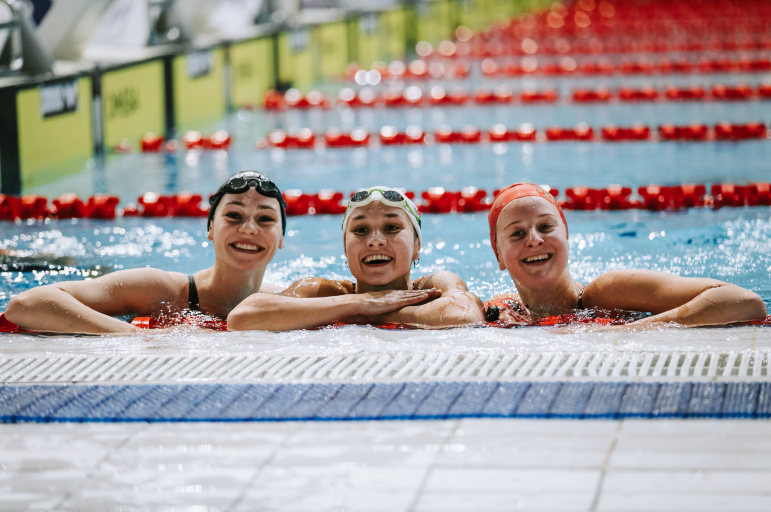The Russian Swimming Championships in Kazan, with 42 sets of medals at stake, has ended. Over 400 athletes participated in the one of the first tournament after a long break due to the COVID-19 pandemic. Despite the lack of competitions in the recent months, swimmers managed to show worthy results and more than that, to set new Russian and world junior records.
President of the Russian Swimming Federation, Vladimir Salnikov, highly praised the championships’ results. “The championships were a real success. The organisational level was as high as usual. The athletes are improving their performances at lightning speed. Despite insufficient time for preparation needed to perform at their best, the swimmers managed to set world junior records, as well as national records,” he commented on the results of the competition. He also emphasised the success of the young swimmers who challenged more experienced competitors. “I saw passion, desire to make up for the lost time as quickly as possible. And it is really happening!” added Vladimir Salnikov.
During six competition days, a number of Russian and world records were set at the national championships in Kazan. Junior records were set by Evgenia Chikunova from St. Petersburg in the 50 m breaststroke semifinal race, Anna Chernysheva from the Moscow Oblast in the 200 m medley race, Vadim Klimenischev from the Lipetsk Oblast in the 200m butterfly race, and swimmers from St. Petersburg in the 4×100 m medley relay. In addition, Ilya Borodin from the Bryansk Oblast (200 m and 400 m medley races) and Anton Chupkov from Moscow (100 m breaststroke race) set new Russian records. Ilya Borodin also set a world junior record in the 400m medley race. One more world junior record was set by Andrey Minakov from St. Petersburg in the 100 m freestyle race. His result, 47.57, also became the Russian and European junior record.
“I am very glad for Andrey. A junior record is probably not his highest goal, but there are three of them, and it appeared to be unexpected for me,” said the President of the Russian Swimming Federation.
Head coach of Russia’s national aquatics team, Sergei Chepik, who positively evaluated the final results of the championships, agrees with Vladimir Salnikov’s opinion. “The championships were a great success! It is heartening to see young swimmers who compete and inspire everyone else try harder. There emerged a second wave of young athletes who will replace the national Olympic team by 25-30%,” he said.
The following swimmers made it to the top of the podium more than once: Alexander Egorov from Moscow, who won gold in the 400 m, 800 m and 1,500 m freestyle races; Ilya Borodin (200 m and 400 m medley); Evgenia Chikunova (50 m, 100 m and 200 m breaststroke); Grigory Tarasevich from Tatarstan (50 m, 100 m and 200 m backstroke); Andrey Minakov (100 m butterfly, 100 m freestyle); Daria Vaskina from Moscow (100 m backstroke, 50 m butterfly, 50 m backstroke, 100 m butterfly); Anton Chupkov (100 m and 200 m breaststroke); Anna Chernysheva (200 m and 400 m medley).
Swimmers from St. Petersburg were unbeatable in the medley relays, just twice excelled by competitors from Moscow.
Press Office of Directorate for Sports and Social Projects
